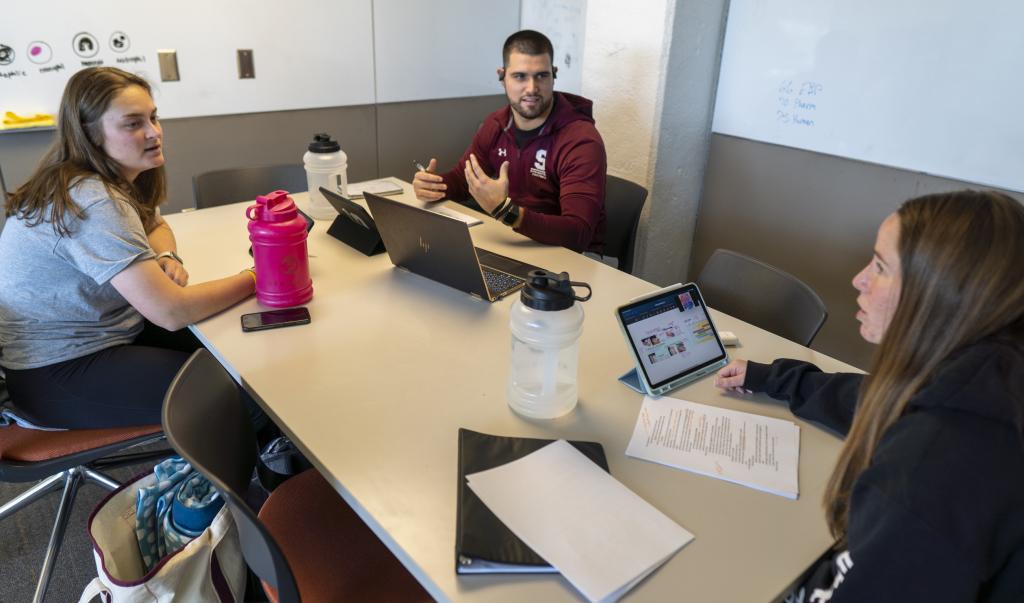Psychology
Bachelor of Science
| About This Program | |
|---|---|
|
Program Contact
Matthew Brubaker, PhD |
|
|
Review our admissions requirements |
|
Curriculum and Delivery
|
|
| Graduate Success and Careers | |
| Paying for Your Education | |
|
Upcoming Events
Check back soon for upcoming events! |
|
|
Follow us on Instagram |
|

Understand Human Behavior.
Springfield College remains in the forefront of psychology education by providing the community with broadly trained, practically experienced professionals who are prepared to enter the workplace. Students in the Psychology major explore topics such as research methods, human development, motivation and learning, human relations in organizations, and interviewing and counseling. The goals of Springfield College’s undergraduate psychology program are to introduce students to the primary areas of importance in psychology and to prepare them for ever-growing career opportunities.
In addition to preparing students to enter the workplace as well-prepared and broadly-trained professionals, psychology students will receive the pre-training that is required to enter graduate school in psychology or in one of the applied fields.
A Clear Path from Psychology to Counseling
As an accepted Psychology student at Springfield College, you have access to a unique advantage, direct entry into one of our master’s programs in counseling, should you choose to continue your graduate studies.
Eligible students may receive automatic admission into one of the following graduate programs:
This seamless pathway allows you to move confidently from undergraduate study to graduate preparation, without the stress of reapplying, and stay connected to the same supportive faculty, values, and campus community.



